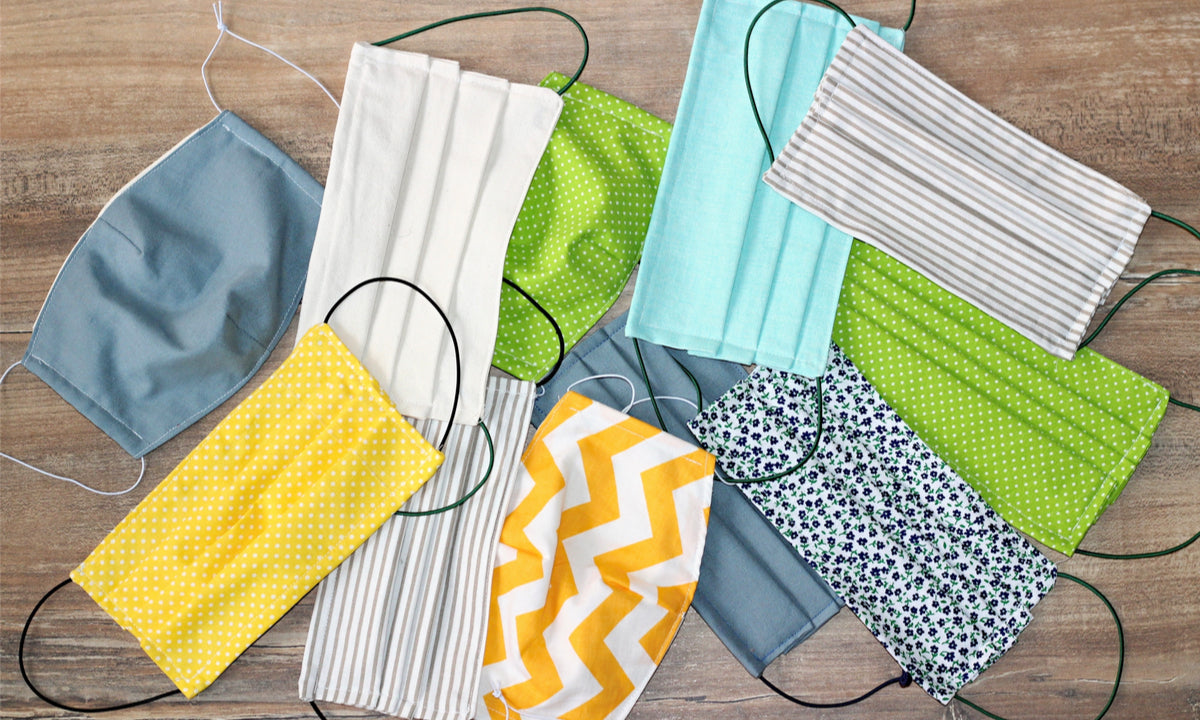Your Cart is Empty
FREE SHIPPING on US orders over $45. Save 25% With Code TAKE25 at checkout.
FREE SHIPPING on US orders over $45. Save 25% With Code TAKE25 at checkout.

As the global pandemic continues, wearing a mask doesn’t seem to be going away any time soon. New evidence continues to emerge showing the effectiveness of masks, and more and more places require people to wear them.
For some of us, wearing a mask can cause — or worsen — skin problems on the face. Dubbed ‘maskne’, the irritation and congestion caused by wearing a mask is becoming (another) problem for people around the world.
Since masks are essential to reduce the spread of the coronavirus, it’s important to help prevent skin problems from developing under your mask.
Here’s what you need to know to help keep your skin clear under cover!
All sorts of skin problems can develop beneath your mask, since the area beneath the fabric can become warm and damp — conditions that are unfortunately ideal for bacteria and blemishes.
The most common form of maskne is known as acne mechanica, a type of acne triggered by excess heat, pressure, friction, or rubbing of the skin. It typically presents as small red bumps that are more easily felt than seen. Left unchecked, these little red bumps can turn into pimples and sometimes deep acne cysts.
Acne mechanica is especially common in athletes and soldiers, since the equipment they use (heavy pads, straps, and helmets) is in regular contact with the skin.
Maskne is not just another beauty buzzword — it’s real. The moist environment from breathing, talking, and sweating is a recipe for breakouts and other skin problems. Luckily, there are a few simple things you can do to help prevent mask-related skin issues:
Take gentle care of your skin. When a new problem area appears, it can be tempting to reach for a new product — especially if it promises clearer skin in a matter of days. But the last thing your skin needs is another new product right now.
Instead, you’ll want to streamline your skincare routine. Stripping it back to the basics (just a gentle cleanser and a mild moisturizer) can help to reduce skin problems, especially since wearing a mask can make your skin more sensitive. Avoid occlusive or greasy-feeling products. It's also best to avoid products with harsh ingredients that can contribute to irritation.
Break up with makeup (at least for now). Until your skin heals, makeup can worsen a mask-related skin issue. And since no one will see the lower half of your face anyway, it’s the perfect time to skip makeup that could clog your pores, aggravate acne, or contribute to other skin imperfections.
Wear the right mask. To reduce skin problems, the American Academy of Dermatology (AAD) recommends wearing masks that offer the following:
The AAD also recommends avoiding synthetic fabrics (such as nylon, polyester, and rayon) on the inner layer that rests against your skin. Synthetic fabrics trap moisture and are more likely to cause irritation and breakouts.
Make sure your mask fits properly. This is major, since masking only works when masks are worn properly. Make sure the mask fits to cover your nose, mouth and chin. To avoid chafing, your mask shouldn’t be too tight or gap excessively.
Masks with ties or adjustable straps can be a bit easier to adjust to the size and shape of your face. If you wear glasses, a bendable piece on the bridge of the nose is great to ensure a tight fit that won’t cause fogging.
Wash your cloth masks. Each time you wear your mask, your own saliva, sweat, and oil builds up on the inside of the mask and the areas where it touches your face. To limit the spread of germs, the Centers for Disease Control and Prevention (CDC) and other health organizations recommend that you wash your cloth face masks after each use. Use a gentle, nonirritating soap and dry it in the dryer. Store fresh, dry masks in a bag to keep them clean.
With the right skincare treatment, you should notice a difference in a few days. If your skin stays the same or worsens, you may need to consult a dermatologist. Remember, masks aren’t the only potential cause of acne — stress and diet are known triggers (for instance, there is increasing evidence that sugary foods and dairy can trigger acne in adults).
A dermatologist can help you identify the source of the problem and keep the condition under control. These days, many skin conditions can be diagnosed and managed using telemedicine and pictures of problem areas sent by phone.
Continue to wear a mask to protect yourself and others. Science tells us that masks are vital to prevent the spread of COVID-19. Always wear a mask when it is not possible to socially distance (like when you’re at the grocery store or pharmacy). We all have a responsibility to protect ourselves, our families, and our communities.